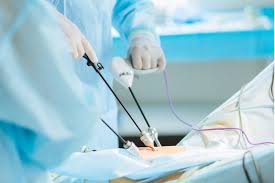Lap Assisted Hemicolectomy
India
-
Our Price USD 3780
-
Hospital Price USD 4200
-
You Save : USD 420
Booking Amount: USD 378. Pay Remaining 90% at the hospital.
Book NowAdditional Credit
Among the important extras we offer as part of the Additional Credit are the following:
-
Site Tourism For The Patient & Attendant
-
Airport Pick & Drop Service
-
Ambulance service at airport
-
Priority appointments with The Doctor
-
Cancel Easily Anytime with Full Refund
-
Room Upgradation
-
Free Online Doctor Consultation Valued at USD 20
-
Free hotel Stay for 5 to 7 days Accordingly
-
Welcome Kit at Arrival
-
Interpreter
-
Medical Visa Assistance
What is Included?
- Doctor consultation charges
- Lab tests and diagnostic charges
- Room charges inside hospital during the procedure
- Surgeon Fee
- Cost of implant
- Nursing charges
- Hospital surgery suite charges
- Anesthesia charges
- Routine medicines and routine consumables (bandages, dressings etc.)
- Food and Beverages inside hospital stay for patient and one attendant.
What is not Included?
- Extra Radiology Investigations
- Healthcare Professionals Charges of other consultations.
- Other Requested Services such as Laundry etc.
- Additional Pharmaceutical Products and Medicines After Discharge from Hospital.
- Management of Conditions Unrelated to Procedures or Pre-Existing.
- The cost of any additional implants will be in addition to the package cost.
Package Description
Lap Assisted Hemicolectomy:
Laparoscopic Assisted Hemicolectomy Surgery that uses a laparoscope to remove all or part of the colon through a series of tiny incisions in the abdominal wall.
Hemicolectomy surgery is a big procedure. It's possible that you won't be able to resume routine activities for many weeks or more thereafter. You'll probably feel foggy when you wake up from surgery due to the anaesthetic. Because of the pain drugs provided to you through IV drip, you won't experience any discomfort at first.
Disease Overview:
Crohn's disease
Crohn's disease is an inflammatory bowel illness that affects the intestines (IBD). It causes digestive system inflammation, which can result in stomach discomfort, severe diarrhoea, exhaustion, weight loss, and malnutrition.
Crohn's disease causes inflammation in different parts of the digestive system in different persons. This inflammation frequently extends into the bowel's deeper layers.
Crohn's disease is a painful and debilitating condition that can occasionally result in life-threatening complications.
Disease Signs and Symptoms:
Any region of your small or large intestine can be affected by Crohn's disease, and it can be continuous or encompass different segments. The condition is limited to the colon, which is a portion of the large intestine, in some patients.
Crohn's disease signs and symptoms can range from moderate to severe. They normally appear gradually, although they can sometimes appear suddenly and without notice. There may also be times when you have no indications or symptoms (remission).
When the condition is active, you may notice the following signs and symptoms:
- Diarrhea\Fever
- Fatigue
- Cramping and discomfort in the abdomen
- Stool with blood in it Mouth sores
- Appetite suppression and weight reduction
- Inflammation from a tunnel into the skin causes pain or discharge at or around the anus (fistula)
Other symptoms and indicators
People with severe Crohn's disease may also suffer from the following symptoms:
- Skin, ocular, and joint inflammation
- Inflammation of the liver or bile ducts is a condition in which the liver or bile ducts are inflamed
- Stones in the kidneys
- a lack of iron (anemia)
- In youngsters, there is a delay in growth or sexual development.
Disease Causes:
Crohn's disease has yet to be identified as a specific cause. Diet and stress were formerly suspected, but physicians now know that these variables can worsen Crohn's disease but do not cause it. Its development is presumably influenced by a number of variables, including inheritance and a dysfunctional immune system.
The immune system is the body's defence mechanism. It's possible that a virus or bacteria causes Crohn's disease, but scientists have yet to discover such a cause. An aberrant immune reaction allows your immune system to assault the cells in your digestive tract as well when it tries to fight off the invading bacterium.
Heredity. Crohn's disease is more frequent in persons who have relatives who have it, thus genes may play a role in making people more vulnerable.
Most patients with Crohn's disease, on the other hand, do not have a family history of the condition.
Factors that are at risk
Crohn's disease can be caused by a number of conditions, including:
- Age. Crohn's disease can strike at any age, although it's more likely to strike while you're young. Most persons with Crohn's disease are diagnosed before they reach the age of 30.
- Ethnicity. Although Crohn's disease can afflict persons of any ethnicity, white people, particularly those of Eastern European (Ashkenazi) Jewish origin, are at the greatest risk. However, Crohn's disease is becoming more common among Black people in North America and the United Kingdom.
- History of the family. If you have a first-degree family with the disease, such as a parent, sibling, or kid, you're at a greater risk.
- One in every five persons with Crohn's disease has a family member who also has it.
- Smoking cigarettes. The most important controllable risk factor for Crohn's disease is cigarette smoking. Smoking also causes more severe illness and increases the likelihood of requiring surgery. It's critical to quit smoking if you do.
- NSAIDs are nonsteroidal anti-inflammatory drugs. Ibuprofen (Advil, Motrin IB, and others), naproxen sodium (Aleve), diclofenac sodium, and others are among them. While they do not cause Crohn's disease, they can promote intestinal inflammation, which can exacerbate the condition.
Disease Diagnosis:
After ruling out other probable explanations for your signs and symptoms, your doctor will most likely diagnosis Crohn's disease. Crohn's disease cannot be diagnosed with a single test.
To confirm a diagnosis of Crohn's disease, your doctor will likely employ a combination of tests, including:
Tests in the lab
Tests on the blood. Blood tests may be recommended by your doctor to check for anaemia (a disease in which there aren't enough red blood cells to provide enough oxygen to your tissues) or infection indications.
Stool research. You may be asked to give a stool sample so that your doctor may check for concealed (occult) blood or organisms in your faeces, such as parasites.
Procedures
Colonoscopy. Using a tiny, flexible, illuminated tube with a camera at the end, your doctor may observe your whole colon and the very end of your ileum (terminal ileum). Your doctor may also collect tiny samples of tissue (biopsy) for laboratory study during the surgery, which may aid in the diagnosis. If granulomas, or clusters of inflammatory cells, are found, they can confirm the diagnosis of Crohn's disease.
Tomography using a computer (CT). You could need a CT scan, which is a type of X-ray that shows greater information than a regular X-ray. The whole colon as well as tissues outside the gut are examined in this examination. CT enterography is a type of CT scan that gives you a clearer picture of your small intestine.
In many medical settings, this test has taken the place of barium X-rays.
Magnetic resonance imaging is a type of imaging that uses radio waves (MRI). To obtain detailed pictures of organs and tissues, an MRI scanner employs a magnetic field and radio waves. A fistula surrounding the anal region (pelvic MRI) or the small intestine can both be evaluated using MRI (MR enterography).
Endoscopy of the capsule You take a capsule with a camera in it and swallow it for this exam. The camera captures images of your small intestine and sends them to a belt-worn recorder. The photos are then transferred to a computer and analysed for evidence of Crohn's disease. In your stool, the camera departs your body without discomfort.
To confirm the diagnosis of Crohn's disease, you may require an endoscopy with biopsy. If there is a bowel blockage, capsule endoscopy should be avoided.
Enteroscopy with the use of a balloon. A scope is utilised in combination with an overtube device for this exam. This allows the clinician to see farther into the small intestine than ordinary endoscopes can. When capsule endoscopy reveals anomalies but the diagnosis is still in doubt, this approach comes in handy.
Disease Treatment
Crohn's disease has no known cure, and there is no single treatment that works for everyone. Reduced inflammation, which causes your signs and symptoms, is one objective of medical treatment. Another objective is to reduce complications in order to enhance long-term prognosis. In the best-case scenario, this might result in both symptom alleviation and long-term remission.
Medicine
Anti-inflammatory medications
Anti-inflammatory medications are frequently used as the first line of defence against inflammatory bowel disease. They are as follows:
- Corticosteroids can help reduce inflammation in the body, but they aren't always effective for people with Crohn's disease. Doctors often use them only after other therapies have failed.
- Oral 5-aminosalicylates were once widely utilised, but they are now universally regarded as having very little value.
Suppressors of the immune system
These medications also lower inflammation, but they do so by targeting your immune system, which creates the inflammatory chemicals. For some people, a combination of these medicines is more effective than taking just one of them.
Suppressors of the immune system include:
- Mercaptopurine (Azasan, Imuran) and azathioprine (Azasan, Imuran) (Purinethol, Purixan). These are the most often prescribed immunosuppressants for inflammatory bowel disease therapy.
- Methotrexate is a drug that is used to treat cancer (Trexall). This medicine is occasionally used for Crohn's disease patients who do not react well to previous treatments. For adverse effects, you'll need to be properly monitored.
Biologics
- This group of treatments focuses on proteins produced by the immune system. The following are examples of biologics used to treat Crohn's disease:
- Tysabri (natalizumab) and vedolizumab (Vedo) are two anti-cancer drugs (Entyvio). These medications act by preventing integrins, which are molecules found in immune cells, from attaching to other cells in the gut lining.
- Certolizumab pegol, infliximab (Remicade), adalimumab (Humira), and infliximab (Remicade) (Cimzia). These medications, also known as TNF inhibitors, function by neutralising a protein in the immune system called tumour necrosis factor (TNF).
- Ustekinumab is a monoclonal antibody that is used to treat (Stelara). This drug was recently licenced to treat Crohn's disease by inhibiting the function of an interleukin, a protein that plays a role in inflammation.
Antibiotics
In persons with Crohn's disease, antibiotics can lessen the amount of leakage from fistulas and abscesses and even heal them. Antibiotics may also help eliminate dangerous intestinal bacteria, which may play a role in stimulating the gut immune system, resulting in inflammation, according to some studies. Ciprofloxacin (Cipro) and metronidazole are two antibiotics that are often administered (Flagyl).
Dietary treatment
To treat Crohn's disease, your doctor may propose a specific diet delivered by mouth or through a feeding tube (enteral nutrition) or nutrients injected into a vein (parenteral nutrition). This can help you eat better and give your bowels a break. In the near term, bowel rest can help to lessen inflammation.
Surgery
Your doctor may prescribe surgery if diet and lifestyle modifications, pharmacological therapy, or other therapies fail to relieve your signs and symptoms. Nearly half of those with Crohn's disease will need surgery at some point. Surgery, on the other hand, does not cure Crohn's disease.
Your surgeon will remove a damaged segment of your digestive tract and then rejoin the healthy sections during surgery. Fistulas and abscesses can also be treated with surgery.
The advantages of Crohn's disease surgery are typically just transitory. Recurrence of the illness is common, especially near the rejoined tissue. To reduce the chance of recurrence, it is better to combine surgery with medication.
Information related to Treatment
Package Details
Days in Hospital
7 Days
Days in Hotel
*
14 Days
Room Type
Private
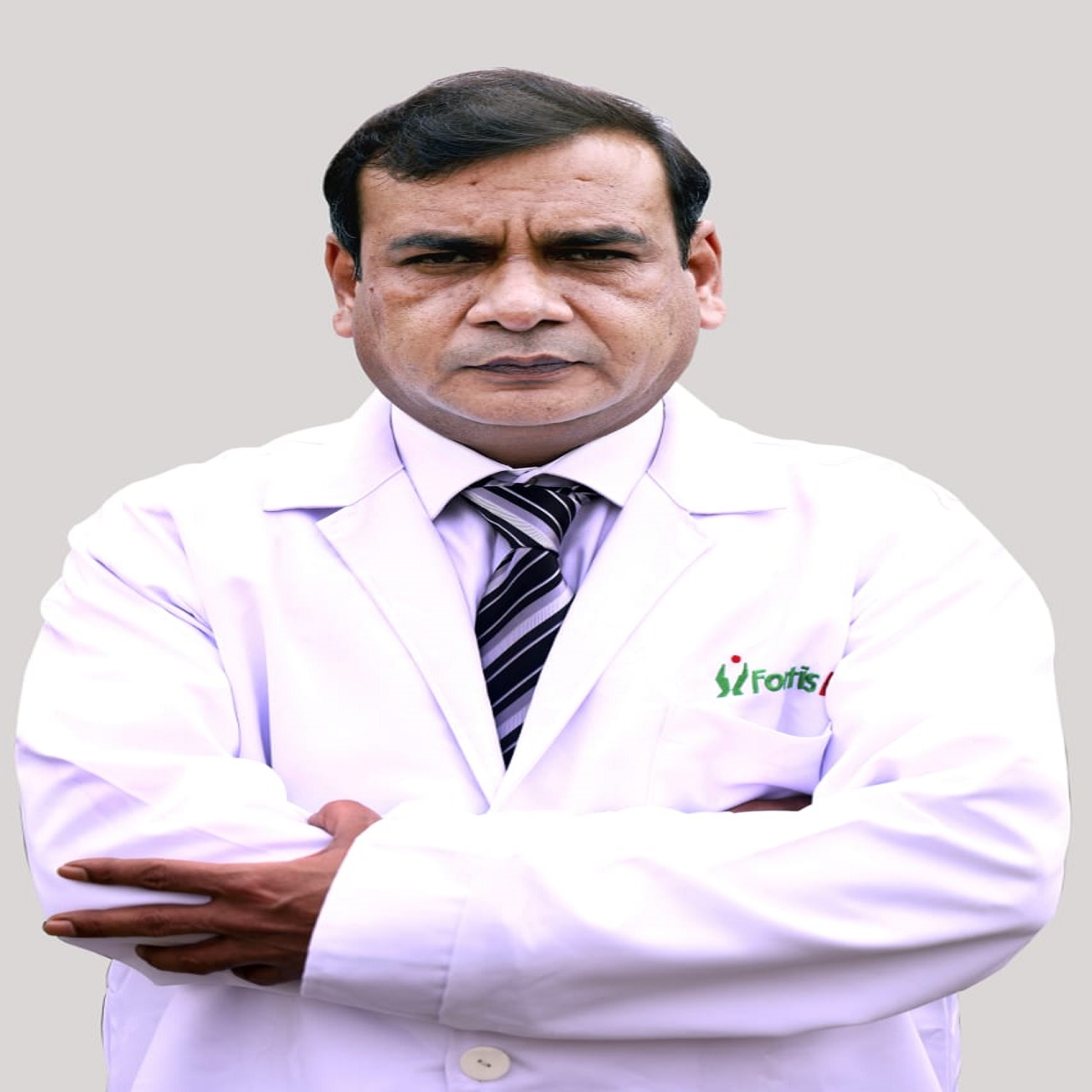
Treating Doctor
Dr. Sanjay Verma
General surgeon- Laparoscopic surgeon
Fortis Escorts Heart Institute New Delhi, India
20 Years of Experience
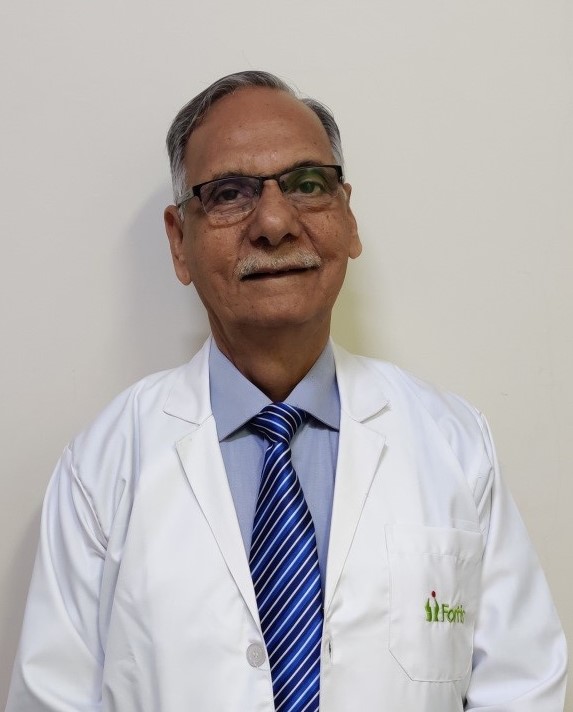
Treating Doctor
Dr. Anand Kumar Chaturvedi
General surgeon- Hernia Surgeon, Appendicectomy, General Surgery, Laparoscopic Appendicectomy, Fitsula treatment, General Surgery, General Surgery
Fortis Hospital Noida Noida, India
45 Years of Experience
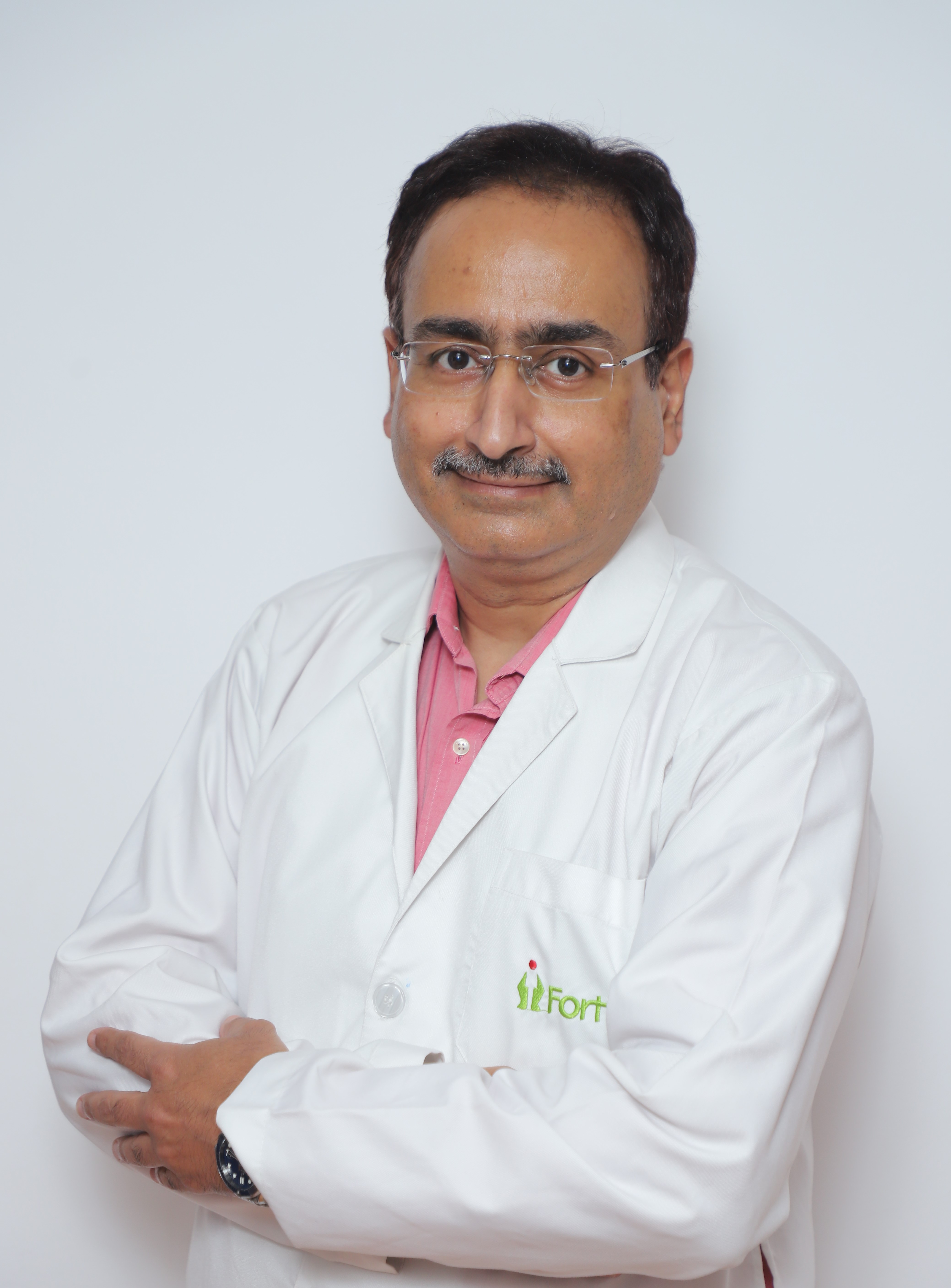
Treating Doctor
Dr Kapil Kochhar
General surgeon- Gallstones, Cholecystitis, Colon Cancer and Bowel Diseases, Inguinal Hernia (in Groin), Cholecystitis, Pancreatic or Duodenal Trauma, Crohn's Disease, Chronic Pancreatitis, Pancreatic Head Cancer, Complicated Acute Appendicitis, Crohn's Disease
Fortis Hospital Noida Noida, India
29 Years of Experience
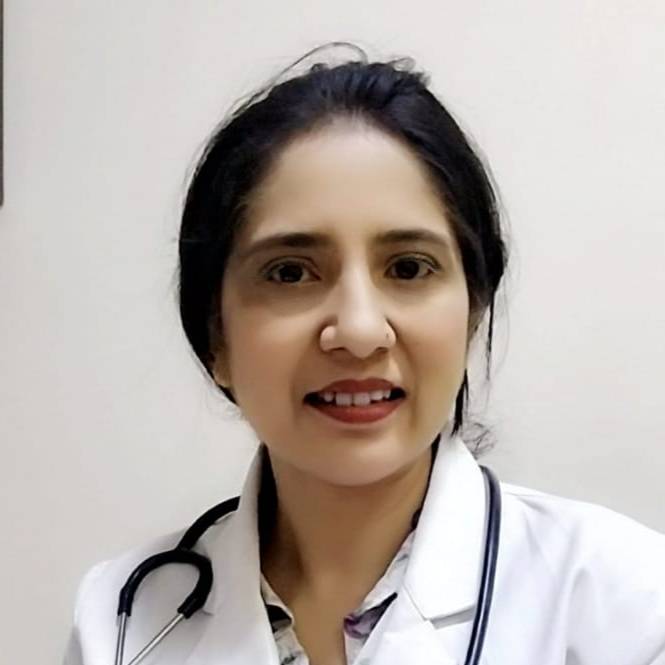
Treating Doctor
Dr Shilpa Verma
Lapasoscopic Surgeon- Laparoscopic Surgery, Laparoscopic Surgery, Rhinoplasty, Abdominoplasty, Abdominoplasty, Rhinoplasty, Piles Surgery, Piles Treatment (Non Surgical), Piles Treatment (Non Surgical), Laparoscopic Surgery, Abdominoplasty, Face Lift/ Rhytidectomy, Rhinoplasty, Piles Surgery, Laparoscopic Surgery, Piles Surgery, Piles Treatment (Non Surgical), Abdominoplasty, Face Lift/ Rhytidectomy, Rhinoplasty, Laparoscopic Surgery, Laparoscopic Surgery
Fortis Hospital Noida Noida, India
21 Years of Experience
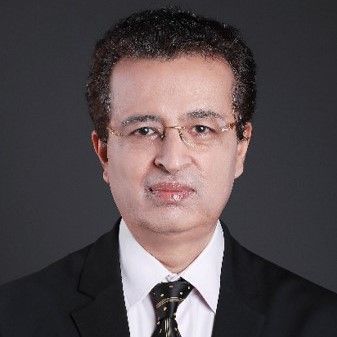
Treating Doctor
Dr Anil Sharma
General surgeon- Hepatobiliary, Hepatobiliary, Gall Bladder Surgeon, Appendix Surgeon, Scarless neck surgery, Bariatric & Metabolic Surgery, Fistula Surgery, Piles Surgery, Diabetes Mellitus, Bariatric & Metabolic Surgery, Weight loss metabolic surgery, Scarless surgery, Cardiomyotomy, Obesity Surgery, Piles Surgery, Fissure, Fistula Surgery, Laproscopic Fundoplication, laparoscopic abdominal and inguinal hernia repair, Treatment of Hernia, Piles Surgery, Thyroid and parotid surgeries
Max Super Speciality Hospital New Delhi, India
27 Years of Experience
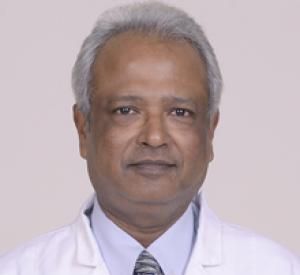
Treating Doctor
Dr P K Dewan
Bariatric Surgeon- Gastrointestinal surgery, Laparoscopic surgeon, Gallbladder Surgeon, Fistula Surgeon, Fistula Surgeon, Hernia Repair Surgery, Anal Fissure Surgery, Anal Fissure Treatment (Non-Surgical), Diabetic Foot, Endoscopic Surgery, Hemorrhoids, Hepato-Biliary-Pancreatic, Incisional Hernia, Laparoscopic Abdominal Surgery, Navel Laparoscopic, Hepato-Biliary-Pancreatic, Hemorrhoids, Endoscopic Surgery
MAX Super Speciality hospital, Patpadganj Delhi New Delhi, India
42 Years of Experience
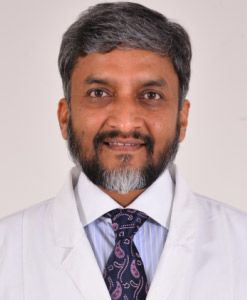
Treating Doctor
Dr. Ajay Jain
General surgeon- Cardiothoracic anesthesiology, Bariatric Surgeon, Hernia Surgeon, Cancer Surgeon, Laparoscopic surgeon, Hernia Surgeon, Liver Transplant, Hernia Surgeon, Laparoscopic surgeon, Bariatric Surgeon, Kidney Transplant, Breast Surgery, GI Surgery, Minimal Access Surgery, Piles Surgery, Thoracic Surgery, General Surgery, Breast Surgery, Piles Surgery, Kidney Transplant, Liver Transplant, Laparoscopic Cholecystectomy, Kidney Transplant, General Surgery, Piles Surgery, Advanced Laparoscopic and Robotic Surgeries, GI Surgery, Minimal Access Surgery, General Surgery, Lung Tranplantation, GI Surgery, Breast Surgery
MAX Super Speciality hospital, Patpadganj Delhi New Delhi, India
27 Years of Experience
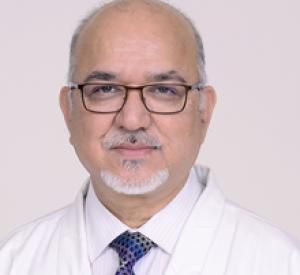
Treating Doctor
Dr Bachan Singh Barthwal
General surgeon- Gall Bladder Surgeon, Minimally invasive surgery, Gastric Band Surgery, Minor Surgery, Laparoscopic hernia surgery (All types), Minor Surgery, Laparoscopic Appendicectomy, Laparoscopic Cholecystectomy, Laparoscopy for Hiatus Hernia, Fitsula treatment
MAX Super Speciality hospital, Patpadganj Delhi New Delhi, India
34 Years of Experience
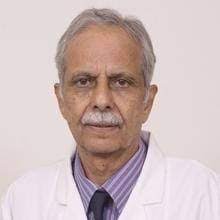
Treating Doctor
Dr Ashok Sabharwal
General surgeon- Hiatus Hernia Surgery, Laparoscopic hernia surgery (All types), Laparoscopic Appendicectomy, Laparoscopic Cholecystectomy, Laproscopic Spleenectomy, Laproscopic Fundoplication, Minimally Invasive Procedure for PILES or Stapler, Video Assisted Anal Fistula Treatment, Laparoscopic Bile duct, Stones Surgery, Laparoscopy for Achalasia Cardia, Laparoscopy for Hiatus Hernia, Laparoscopy for Pseudopancreatic Cysts, Laparoscopy in various Liver Cysts
MAX Super Speciality hospital, Patpadganj Delhi New Delhi, India
27 Years of Experience
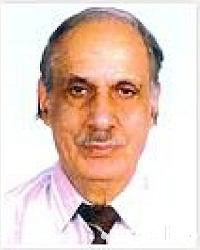
Treating Doctor
Dr. B M L Kapoor
General surgeon- Colorectal surgery, Transplant surgery, Trauma surgery, Cardiothoracic Surgeon, Cardiothoracic Surgeon, Critical care, Reconstructive Surgeon, Critical care, Breast Surgery, Breast Surgery, Critical care, Breast Surgery
Indraprastha Apollo Hospitals, New Delhi New Delhi, India
66 Years of Experience

